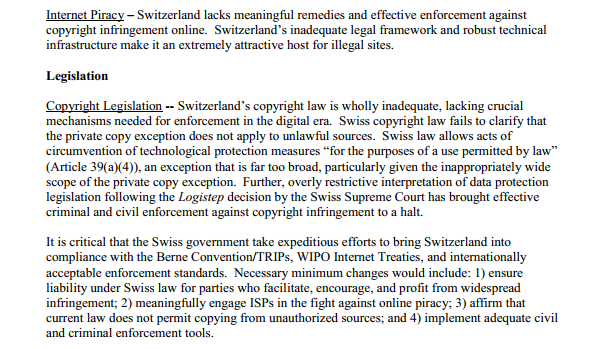 In 2007, the movie The Man From Earth leaked on file-sharing networks, with unexpected results. Instead of proving nothing but damaging, the title gained almost universal praise, rocketing the sci-fi flick to stardom via word-of-mouth advertising.
In 2007, the movie The Man From Earth leaked on file-sharing networks, with unexpected results. Instead of proving nothing but damaging, the title gained almost universal praise, rocketing the sci-fi flick to stardom via word-of-mouth advertising.
Director Richard Schenkman and producer Eric Wilkinson embraced the development and enthused over the attention their work was receiving online. Given the positive experience, during January 2018 the team deliberately ‘leaked’ the sequel – The Man from Earth: Holocene – on The Pirate Bay.
Given that filmmakers tend to view piracy as the enemy, TorrentFreak enthusiastically reported both events. Sadly, we had less positive news to convey this week when, out of the blue, Schenkman published an article on the site of pro-industry, anti-piracy alliance CreativeFuture, in which he heavily criticized piracy.
There can be little doubt that the piece was a gift to CreativeFuture and everyone who viewed Schenkman and Wilkinson’s place in the piracy debate as something positive for unauthorized sharing. The movie’s story had become a ray of light and here it was being shredded, a disastrous episode from which nothing good had come.
At TorrentFreak, however, we had our doubts about the tone of the piece. Never before had we seen such a turnaround, particularly when reviewing all previous correspondence with Schenkman. Something didn’t add up.
Mainly due to timezone differences, Schenkman responded to our questions after our article was published. However, his responses only served to increase our suspicions that what had been published on CreativeFuture wasn’t representative of his overall position on piracy.
First of all, Schenkman was rightfully furious about his movie being distributed in Russia after being professionally dubbed, with his donation requests removed from the resulting copy. That, most people will agree, is a flat-out insult to someone who has bent over backward to accommodate piracy.
He had every right to be annoyed but it’s worth noting that his anger was directed at one site, not necessarily pirates in general. In fact, Schenkman told us that plenty of positives have come out of the releases of both movies.
“The only reason that people all over the world knew and loved the original ‘Man from Earth’ was because of piracy, so while I’m disappointed that we’ve (still) made so little money from the first film, I’m deeply grateful that so many people have been able to see my movie,” he told TF this week.
“I’m still quite enthusiastic about, and deeply grateful for, the thousands of people who have written to us with kind words about the films, and who have made donations, large or small,” he added.
“I well understand that once we released the movie into the pirate ecosystem, nobody was under any obligation whatsoever to send us one penny, so the fact that so many have made donations is stunning to me, and I’ll never cease to be appreciative and impressed by the number of people who embraced the honor system. And luckily, donations continue to come in every day.”
For those wondering whether Schenkman’s piece in CreativeFuture and his comments to us might’ve been penned by a different author, assumption forgiven. From our contacts with him in 2007 right through to the present day, we have found Schenkman to be an honest man and a pleasure to deal with. He has never said anything to suggest that piracy is an “existential threat” to creators as mentioned in his piece. So why the sudden negativity?
We all know that life events can shape perceptions, so when the movie’s website and donation portal were hacked around six weeks ago, things began to take a turn for the worse. No revenue for weeks (and thousands in costs to bring it back) appear to have negatively affected the experience for the director. Then other types of piracy happened, ones that ensured that donations would be reduced.
“I learned that there were other people who ignored our requests to share only the version we uploaded, and ripped the movie from BluRay, so that there are versions floating around without my donation preface, even though we DID upload a full HD (BD quality) version of the picture,” Schenkman told TorrentFreak.
Even given the above events, however, the piece in CreativeFuture appears unnecessarily one-sided for a man who still had confidence in the piracy ecosystem a few months ago. Indeed, Schenkman told us this week that his team planned hard for the ‘pirate’ release of Holocene.
“In the case of the new film, we worked for months to promote awareness, so that there would be a groundswell of interest from fans of the original film. I would say that this effort at least partially worked,” he explained.
“In the first week of the pirate release, many thousands of people a day downloaded it, so there was a clear pent-up demand. And we’ve seen more donations come from the ‘Holocene’ release than we ever did from [Man From Earth] alone. So yes, in that sense, the ‘authorized leak’ of the new film has definitely helped spread awareness.
“The movie would have been pirated regardless; by doing it ourselves, we were, to some degree, able to control the narrative, and indeed it became more of a ‘story’, just the same way that ‘producers thank pirates’ became a story at the time of the original film’s release,” he added.
In a long email exchange, Schenkman told us that plenty of fans who didn’t even particularly like his sequel contacted him to congratulate him on choosing the honor system, while donating $5 as a ‘thank you’.
“You’d be surprised at how many of those messages I’ve gotten,” he told us.
But while Schenkman might be surprised at this generosity, we certainly aren’t surprised that none of this came out in the CreativeFuture piece.
It’s understandable that CreativeFuture want to fight their corner with a flawless, polished, and invulnerable anti-piracy narrative, but thankfully we aren’t afraid of calling out both sides of this war, when it’s called for. People deserve that honesty.
For example, Schenkman wanted to speak about some of his frustrations with movie distribution in his article. He believes that the international distribution system is flawed because there isn’t an efficient and fair commercial way to make an indie movie available everywhere, on the same day, unless Netflix buys it.
Those sentiments didn’t make the CreativeFuture piece but we’re happy to let him have a voice here.
“Even now, there isn’t a fair, equitable way for an indie filmmaker like me to make their movie available everywhere around the world at once. Even Amazon, which is in virtually every country, doesn’t allow you to simply upload your movie and with the click of a button make it available everywhere,” he says.
“I think they’ll eventually get there, but not anytime soon. If Netflix buys your movie, great — but if they don’t, you’re back to the antiquated system of going to international film markets and trying to sell you film country by country, a costly, inefficient, and time-consuming process (and again, you’re totally at the mercy of the ‘gatekeepers’).
“When we first released ‘Holocene’ we also made it available at Vimeo and MovieSaints, two platforms which allow access to viewers from most countries. Moviesaints has a unique system allowing both for a partial refund if you don’t like the movie, as well as a ‘tip the filmmaker’ function if you want to provide more support,” he adds.
And then comes an even stronger hint as to why Schenkman’s important comments didn’t make his own article.
“While we’ve seen revenue from both of these platforms, it doesn’t approach the total we’ve earned from donations. So the good news is that thousands of people who watched ‘Holocene’ via the pirate ecosystem have kindly, generously made donations to help support independent film,” he says.
Of course, in the interests of fair reporting we’re absolutely unafraid of publishing the not-so-good news too, so here it is – warts and all.
“The bad news is that hundreds of thousands (or millions) more have not, and thus we are still a long way from breaking even on this very low-budget movie. I really don’t see a sustainable business model for a truly independent filmmaker creating these kinds of thoughtful, serious movies, although I remain open to ideas!” Schenkman concludes.
While CreativeFuture are absolutely entitled to publish whatever they see fit on their own site, it seems clear from Schenkman’s article (and his comments to us spanning more than a decade) that they are only interested in a tightly-controlled narrative that leaves room for criticism of piracy, but none to detail some of the self-inflicted reasons behind much of it.
Piracy is certainly controversial and it can be bad, we’ve acknowledged as much in this piece. But hiding important parts of the full story – especially when they highlight flaws in the distribution system that contributes to piracy’s existence – is just as corrosive.
Source: TF, for the latest info on copyright, file-sharing, torrent sites and more. We also have VPN reviews, discounts, offers and coupons.

 Two years ago the European Commission announced plans to modernize EU copyright law.
Two years ago the European Commission announced plans to modernize EU copyright law.
 This week we have three newcomers in our chart.
This week we have three newcomers in our chart.
 While the European Union has worked hard to strengthen its copyright laws in recent years, one country in the heart of the continent chooses its own path.
While the European Union has worked hard to strengthen its copyright laws in recent years, one country in the heart of the continent chooses its own path. 